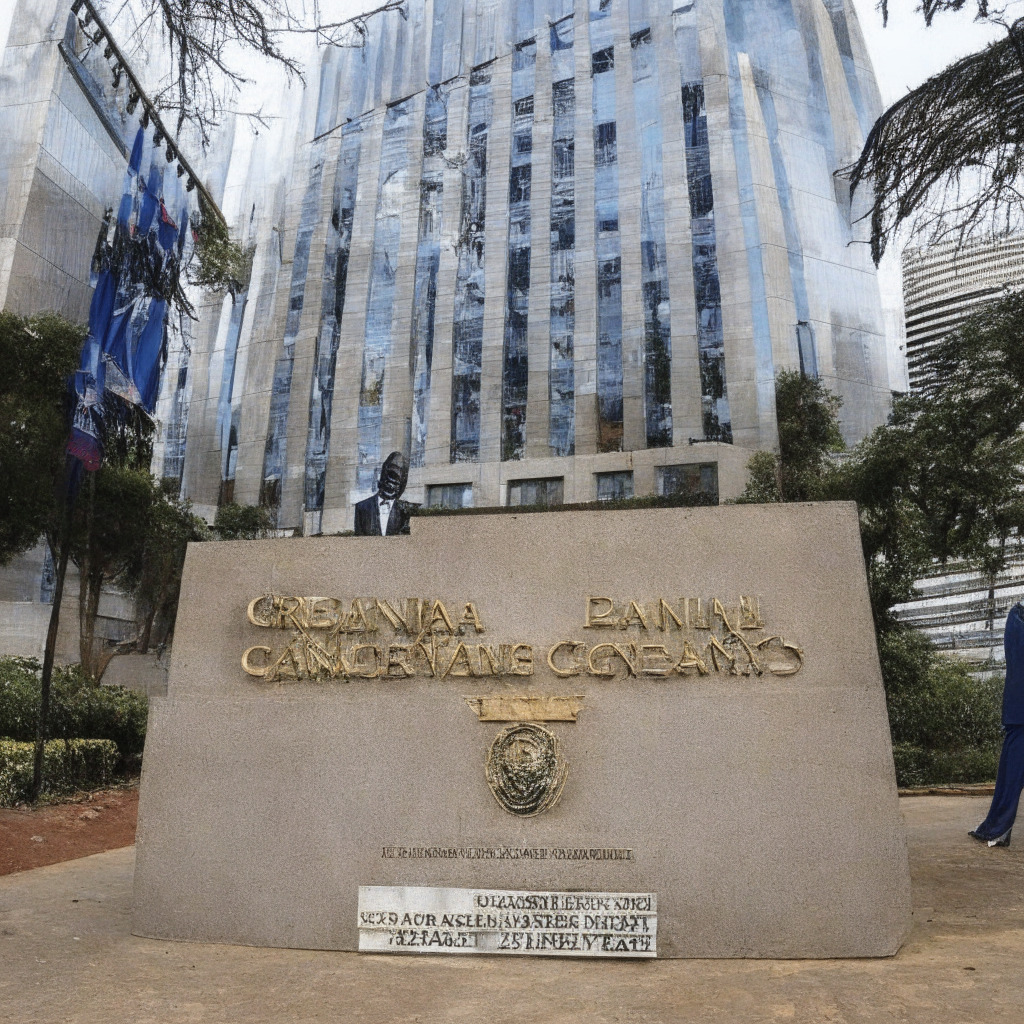The Hong Kong Monetary Authority (HKMA) is laying the groundwork for a retail central bank digital currency (CBDC) called ‘e-HKD’. Following a recently released report and global trends, the HKMA will conduct studies, establish necessary foundations, and initiate pilot programs to explore the implementation and practical applications of a retail CBDC while considering potential risks and challenges.
Search Results for: cbdc
Hong Kong Monetary Authority Explores Retail CBDC: Opportunities and Challenges in Digital Currency
The Hong Kong Monetary Authority (HKMA) is laying the groundwork for a retail central bank digital currency (CBDC), known as e-HKD. Their recent report indicates potential applications for digital currency due to rapid digital economic evolution, with potential implementation on a permissioned blockchain.
India’s Digital Rupee: CBDC Revolution or Privacy Concerns? Pros and Cons Explored
The Reserve Bank of India (RBI) progresses towards implementing the Digital Rupee, a central bank digital currency (CBDC), aiming to onboard one million users. RBI’s pilot program expands, promoting interoperability between CBDC QR codes and India’s Unified Payments Interface. Challenges like privacy and data security must be addressed to maintain trust.
Connecting the Dots: Crypto Lawsuits, Politics, and the Race for CBDC Dominance
John Deaton, a lawyer representing XRP token holders, suggests political motives could influence legal actions against major crypto exchanges like Binance and Coinbase. He proposes connections between Senator Elizabeth Warren, SEC Chair Gary Gensler, and a push for launching central bank digital currencies (CBDCs) as potential explanations for aggressive enforcement.
CBDCs: Balancing Economic Growth, Privacy, and Government Surveillance Risks
Concerns over government surveillance in central bank digital currencies (CBDCs) persist, with only 9% of Consensus 2023 attendees believing a surveillance-free government-backed digital currency is possible. To mitigate these concerns, suggestions include adopting open-source code, transparent minting processes, and allowing users control over their financial data. Balancing economic growth and privacy remains a pertinent challenge in embracing digital currencies.
Kenya’s CBDC Skepticism: Balancing Innovation and Risk in Global Finance
The Central Bank of Kenya expresses skepticism regarding prioritizing central bank digital currencies (CBDCs), citing potential risks like high implementation costs, financial exclusion, and recent instability in the cryptocurrency market. Monitoring CBDC developments remains crucial for informed future assessments.
Allure of CBDCs Fading? Kenya’s Cautious Stance Sparks Global Debate on Digital Currencies
Kenya’s Central Bank cautiously states that the allure of Central Bank Digital Currencies (CBDCs) is fading globally, and they are not a top priority in the short to medium term. Although CBDCs offer potential benefits such as lower transaction costs and improved foreign exchange rates, drawbacks such as financial exclusion and vulnerability to cyberattacks remain significant obstacles.
Exploring CBDC Potential in China’s Greater Bay Area: Transforming Commerce & Cross-Border Trade
This joint white paper by Standard Chartered and PwC China explores the potential applications of central bank digital currencies (CBDCs) in China’s Greater Bay Area, highlighting advantages like streamlined supply chains, invoice settlements, and loyalty programs. CBDCs could transform commerce and enhance Know Your Customer processes, but widespread adoption requires collaboration and adaptation.
Crypto Divide in 2024 US Presidential Election: DeSantis vs Biden on Bitcoin & CBDCs
Digital assets are becoming a significant topic in the 2024 U.S. presidential election, with Florida Gov. Ron DeSantis championing a pro-crypto stance while critics accuse the Biden administration of hindering crypto growth and advocating for CBDCs. The debate’s potential influence on the election is still uncertain.
Trust Reserve Arrest in China: CBDC Suppression or Necessary Regulation?
The recent arrest of Trust Reserve team in China, the company behind two stablecoins backed by CNY and HKD, has stirred the crypto community. This event, which might be linked to China’s CBDC crackdown, highlights the importance of e-CNY and raises questions on China’s cryptocurrency regulation approach.
Debate on CBDCs and Crypto’s Role in Dark Web Drug Trafficking: A New Congressional Duel
As the debt ceiling deadline nears, crypto-focused bills address Central Bank Digital Currencies (CBDCs) and cryptocurrencies’ role in dark web drug trafficking. Concerns over privacy and potential legal issues arise from retail CBDCs, while bipartisan bills call for increased transparency and harsher penalties for dark web trafficking.
Surge in Republican Opposition to CBDCs: Privacy Concerns vs Financial Inclusion Benefits
Recent opposition from Republican lawmakers to a central bank digital currency (CBDC) raises concerns over government surveillance and privacy threats, as they argue a digital dollar could grant federal officials unprecedented access to individuals’ financial data. The future of the Federal Reserve’s potential pilot program remains uncertain amid intensified debate surrounding CBDCs.
Hong Kong and UAE’s Central Banks Collaborate on Blockchain: CBDCs, mBridge, and Virtual Assets
Hong Kong and the UAE central banks are strengthening financial cooperation, focusing on virtual asset regulation and integrating central bank digital currencies (CBDCs) for cross-border trade transactions. The countries are collaborating on mBridge, a blockchain supporting multiple CBDCs, promising progress despite political complexities.
Digital Euro: Balancing Innovation, Privacy, and Skepticism in the CBDC Race
The European Central Bank (ECB) finalizes digital euro prototypes, potentially boosting innovation while remaining skeptical about adopting Web3-style distributed ledger technology and smart contracts. With the European Commission set to publish a bill covering privacy safeguards in June, the digital euro could significantly impact the global financial scene.
Expanding India’s CBDC Pilot: Innovation vs Potential Pitfalls in Digital Currency
The Reserve Bank of India (RBI) plans to expand its Central Bank Digital Currency (CBDC) pilot by increasing access points and participating banks, aiming to broaden the national digital currency’s scope and add more use cases throughout the year.
Bank of Japan’s CBDC Pilot: Global Trends and Privacy Concerns Clash
The Bank of Japan’s CBDC initiative report reveals 11 countries have introduced a central bank digital currency, while 18 others are in the pilot stages. Amid growing global interest, concerns about privacy and regulatory challenges persist as nations explore CBDCs’ potential in the future of finance.
Brazil’s CBDC Pilot Project: Exploring Pros, Cons, and Potential Conflicts
The Central Bank of Brazil prepares for its CBDC pilot project with participation from global companies like Visa and Microsoft. The digital real platform, set to kick off in mid-June 2023, focuses on privacy and programmability, while addressing challenges like financial privacy, transaction volumes, and potential monopolies in the ecosystem.
Brazil’s CBDC Pilot Project: Nubank and Crypto Firms Invited, Changing the Financial Landscape
The Brazilian Central Bank has selected crypto-friendly neobank Nubank among other firms for its central bank digital currency (CBDC) pilot project. The move signals a shift in attitude and possible recognition of incorporating crypto-related businesses in the development of a CBDC.
Retail CBDCs: Exploring Benefits, Challenges, and the Future of Central Bank Digital Currencies
The Bank for International Settlements (BIS) published a paper on retail central bank digital currencies (CBDCs) as central banks worldwide explore their potential. Retail CBDCs, designed for public use, could support monetary and financial stability but also face concerns including political interference, financial instability, and data privacy.
Digital Real Pilot: Brazil’s CBDC Future & Challenges with Diverse Stakeholders
The Central Bank of Brazil has selected 14 prestigious institutions, including private banks, public banks, and multinational corporations, for its digital real pilot program, marking a significant step forward in the evolution of digital currencies. This diverse approach aims to cover a wide scope of potential use cases for the nation’s central bank digital currency (CBDC).
DeSantis’ Bold Promise to Protect Bitcoin: The Impact on Crypto Regulations and CBDCs
U.S. presidential candidate Ron DeSantis pledges to protect Bitcoin and the cryptocurrency market, disapproves of central bank digital currencies (CBDCs), and opposes further regulation. His stance sparks debate on the future of digital assets in the United States.
DeSantis Defends Bitcoin and Slams CBDCs: Pros, Cons, and Crypto’s Future Battle
Florida Governor Ron DeSantis announced his US Presidential Campaign, committing to protect Bitcoin if elected. He supports decentralized cryptocurrencies and criticizes central bank digital currencies (CBDCs) for their potential surveillance exploitation and invasion of financial freedoms. The challenge lies in protecting decentralized cryptocurrencies while addressing centralized digital currencies’ harmful effects.
DeSantis Champions Crypto as Civil Liberties: CBDC Skepticism Fuels Political Divide
Republican contender Ron DeSantis supports cryptocurrency as a civil liberties issue, opposing central bank digital currencies (CBDCs) and criticizing federal authorities threatened by Bitcoin. DeSantis’ anti-CBDC stance divides American politics but champions crypto as an alternative to traditional financial systems and government control.
Florida’s CBDC Ban Sparks Debate: Privacy Concerns vs Financial Inclusion Prospects
Florida recently banned Central Bank Digital Currencies (CBDCs), igniting debates on the potential drawbacks of CBDCs, including surveillance and financial habit control. Governor Ron DeSantis voices concerns over central authority imposing environmental, social, and governance criteria, while proponents cite increased financial inclusion and monetary policy control benefits. The future of CBDCs in the U.S. remains uncertain.
Digital Pound: Navigating New Legislation, Privacy, and AML Regulations for CBDC Adoption
The introduction of a digital pound in the U.K. requires new legislation defining its characteristics and amendments to current data, privacy, and anti-money laundering regulations. The Treasury and Bank of England are currently seeking public feedback on its design while developing its policy and technology aspects. The legal framework should address ownership, security, and ensure privacy while protecting citizens from fraud.
Crypto Market Stagnation Amid SEC Stance, Ripple’s Legal Victory, and CBDC Developments
The market remains relatively flat with Bitcoin and Ethereum’s modest increases; XRP and Litecoin show notable growth. Meanwhile, the SEC maintains its regulatory stance as Ripple wins a minor legal victory, and global CBDC partnerships and unified regulations develop.
Exploring CBDCs for Wholesale Cross-Border Payments: Project Cedar x Ubin+ Insights
The Federal Reserve Bank of New York’s NYIC and the Monetary Authority of Singapore’s Project Cedar x Ubin+ explored utilizing central bank digital currency (CBDC) for wholesale cross-border payments, focusing on interoperability and efficiency. Their findings showcase potential gains but also highlight concerns and challenges, including privacy, security, and financial system impact.
Bipartisan Battle Against CBDCs: Financial Privacy vs Global Adoption in 2023
US lawmakers introduced a bipartisan bill aimed at preventing the Federal Reserve from issuing a central bank digital currency (CBDC), citing concerns over financial privacy and surveillance. Despite opposition, global interest in CBDCs remains strong, with various countries planning pilot testing in 2023.
Ripple’s CBDC Platform: Revolutionizing Finance or Threatening Privacy? The Great Debate
Ripple unveils a new CBDC platform, designed to assist central banks and financial institutions in creating and managing their own central bank digital currencies. This reflects growing global interest but also highlights ongoing debates on potential benefits and risks surrounding the adoption of CBDCs.
Ripple’s CBDC Platform: Bridging XRP and Central Banks or Stirring Controversy?
Ripple Lab recently launched Central Bank Digital Currency (CBDC) platforms for stablecoin and CBDCs development, using the XRP Ledger (XRPL) technology. Ripple’s CTO, David Schwartz, emphasized XRPL’s importance as the core ledger technology, while addressing concerns on XRP integration with central bank digital currency platforms and potential regulatory hurdles.
Exploring CBDCs for Seamless Cross-Border Transactions: Potential and Challenges
The New York Federal Reserve and Monetary Authority of Singapore’s joint research suggests that Central Bank Digital Currencies (CBDC) operating on different networks could enable cross-border and cross-currency payments with near real-time settlement finality. This development highlights the potential for a transformative shift in global finance.
Hong Kong’s CBDC Pilot Project: Progress, Controversy, and the Future of Blockchain
The HKMA recently launched a pilot project called Cyber Hong Kong Dollar, a CBDC involving 16 companies, including Alipay Financial, Mastercard Asia, Ripple Labs, Visa, and HSBC. The e-HKD aims to test six potential use cases while results are expected at Hong Kong Fintech Week 2023.































